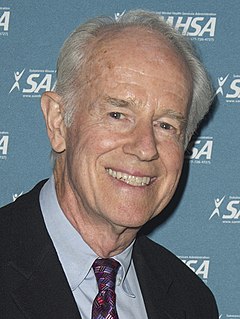A Quote by Robert McNamara
The 'realist' conception of continuing old-fashioned 'balance of power' politics may have been well founded in the past, but it is inconsistent with our increasing interdependent world. On moral grounds alone there can be no justification for the 20th century level of killing. To settle disputes without violence must become the primary goal of foreign policy for every nation.
Quote Topics
Alone
Balance
Balance Of Power
Become
Been
Century
Conception
Continuing
Disputes
Every
Every Nation
Foreign
Foreign Policy
Founded
Goal
Grounds
In The Past
Inconsistent
Increasing
Interdependent
Justification
Killing
Level
May
Moral
Must
Nation
Old
Old-Fashioned
Our
Past
Policy
Politics
Power
Primary
Realist
Settle
Violence
Well
Without
World
Related Quotes
There are those who would draw a sharp line between power politics and a principled foreign policy based on values. This polarized view - you are either a realist or devoted to norms and values - may be just fine in academic debate, but it is a disaster for American foreign policy. American values are universal.
We [with Shindzo Abe] should understand that the results of that terrible tragedy of the 20th century, namely World War II, are enshrined in corresponding international documents, and finding a way to settle all disputes without destroying the entire foundation of international law that evolved as a result of World War II is a highly delicate task. Therefore, I would like to reiterate that we cannot second-guess the course, let alone the outcome of our negotiations.
Earlier the world was bi polar. Foreign policy would be centered around two super powers. India was a little late in realizing that this bi polar situation was for namesake. Now the entire world, in changed circumstances, especially in 21st century, it is more interdependent and inter connected, earlier, the foreign policy was possible between governments, but today it is not possible just between governments. Government relations are important but increasing people to people contact is equally important. There's been a shift in paradigm.
We need a leader who has a sense of balance, an understanding of the ebb and flow of history and a sense of our country's unique place in it. This is a foreign policy debate, and you cannot conduct foreign policy without a sense of what we are fighting for. And any President who can reduce the conduct of this country's affairs to a morning's attack by a bunch of demented fascists does not, in my view, understand what this great nation is all about.
A life sentence without parole protects public safety while sparing us the barbarity of killing our own. It teaches our children that violence will be punished, but not by emulating the violent. This seems eminently more consistent with American ideals than continuing to share the killing stage with some of the world's worst human rights violators.
This is the problem with foreign policy - talking about foreign policy in a political context. Politics is binary. People win and lose elections. Legislation passes or doesn't pass. And in foreign policy often what you're doing is nuance and you're trying to prevent something worse from happening. It doesn't translate well into a political environment.
The American tradition of foreign policy exceptionalism, our grand strategy as a nation, reaches back much further. Really at the turn - the end of the 19th century, when we achieved power a generation after the Civil War, the outlines of an American vision came into focus, and what we - it was based on two things. One, our realization that our values and our interests were the same, and that our business interests would advance as our values advanced in the world.



































